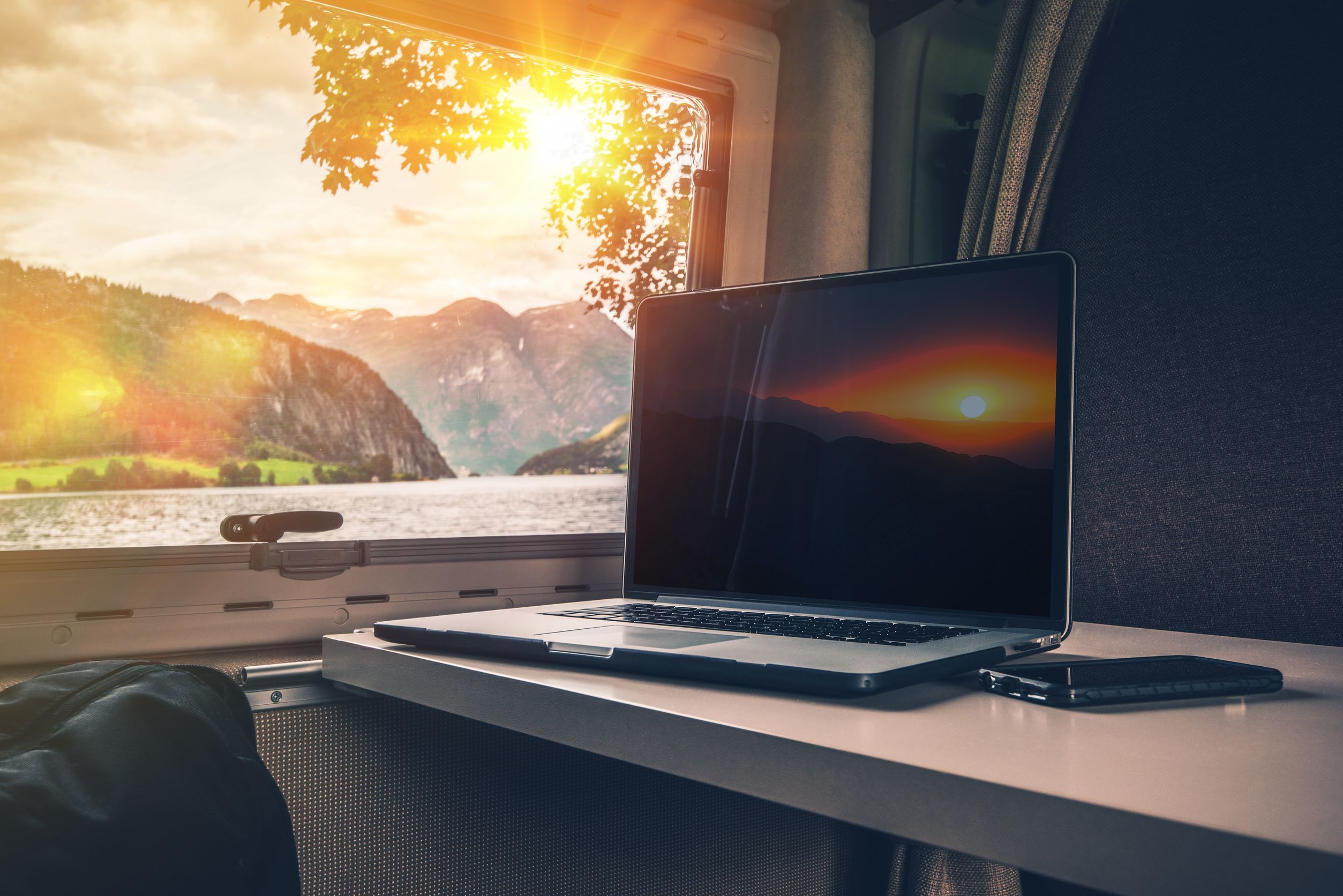Our world is getting more mobile. Cell phones, tablets, and broader Wi-Fi and mobile service have made it not only easier to connect, but easier to work remotely and outside the traditional office setting. According to a Gallup survey in February 2017, “43 percent of employed Americans said they spent at least some time working remotely.”
This is good news for people who like to travel, mix things up, and not be confined to the same cubicle every work day. Owning an RV gives you the flexibility to travel to new places and not just live in an RV, but work from an RV. Whether you’re a full-timer or need to stay plugged in for the season so that the family can get away, there are things you can do to optimize your RV space so that it’s office-ready.
1. Choose the right RV. You need the space to work, not depend on libraries and coffee houses. RVs don’t come designed with an office. In fact, that’s one feature Millennials are clamoring for. You can work out of any RV, but one with a little more elbow room will make it easier, such as a Class A or travel trailer. Just use the dining room table during office hours and put things away when mealtime comes along (or dine outside!). If you want to keep the RV small, such as a camper van, have items on hand to set up a shaded outdoor space where you can work al fresco. As always, no matter what kind of RV you have, organization is key. Keep all of your work items, materials, folders, etc., in their own dedicated space – and put it away in the same place every time.
2. Make a dedicated space. This one is more difficult since every space and surface in an RV is already being used for multiple things. We’ve already mentioned the dining room table, but you can also look into adding a foldable, wall-mounted desk or a collapsible work station that easily stows away. Be prepared, however, to work standing up if you don’t have a chair that can easily move in front of a wall-mounted desk that’s located in a different part of the RV. Here are a few examples:
- This stunning brown mahogany wall mounted laptop desk from Bed, Bath, and Beyond (and other stores).
- This fold-out convertible wall mount desk from Office Max.
- This standing desk converter to give you a little more height on your dining room table.
- This folding computer desk that easily slides into narrow areas when not in use.
3. Go cordless. As much as possible. Your mouse and your printer (if you have one) should be cordless to avoid tripping hazards and jumbled cords. A blue tooth keyboard is also a handy piece as it can operate with many types of devices. If you can, do much of your communication through a tablet or smartphone, but for actual work, a large screen laptop will do just the trick.
4. Buy insurance. The laptop you use to connect to and work is your lifeline, and you really don’t want it stolen. Make sure you have adequate insurance to cover the value of your possessions, as well as insurance to cover your RV unit. Check out this article for tips for keeping your RV safe from intruders and theft.
5. Ensure good internet connectivity. This has been a challenge, but it’s getting better for RVers to work from wherever they are at the time they need to connect. Wireless service providers AT&T and Verizon have data plans that you can connect other devices, such as your computer or tablet, to, to utilize the data. This can get expensive. Many RV campgrounds, resorts, and parks have their own Wi-Fi, but the speed can be quite slow. It’s worth investing in a cell booster to amplify your signal – and meet your deadlines. Here are some more tips for connecting to the Internet.

